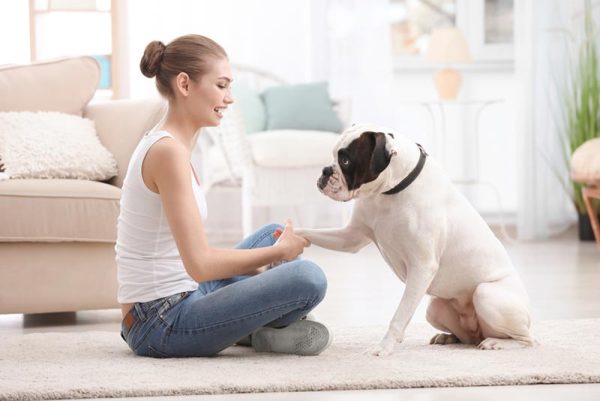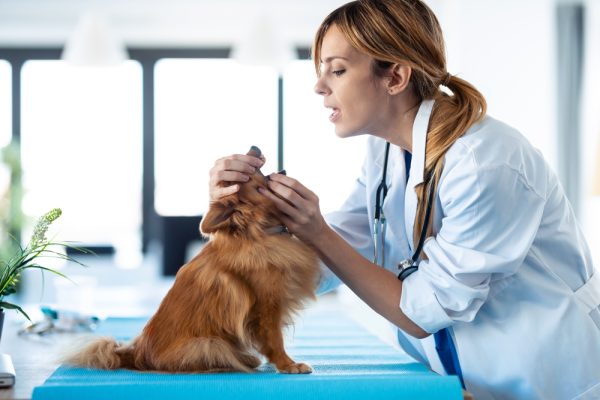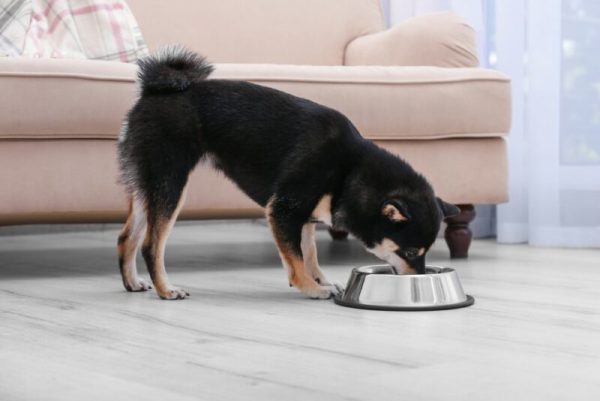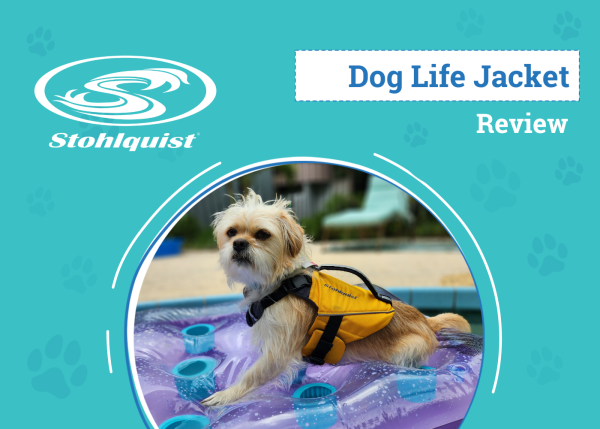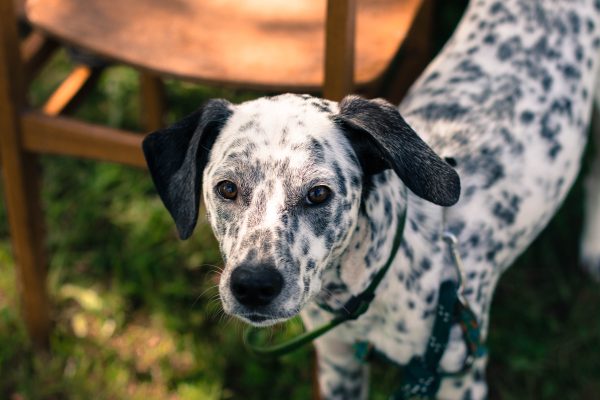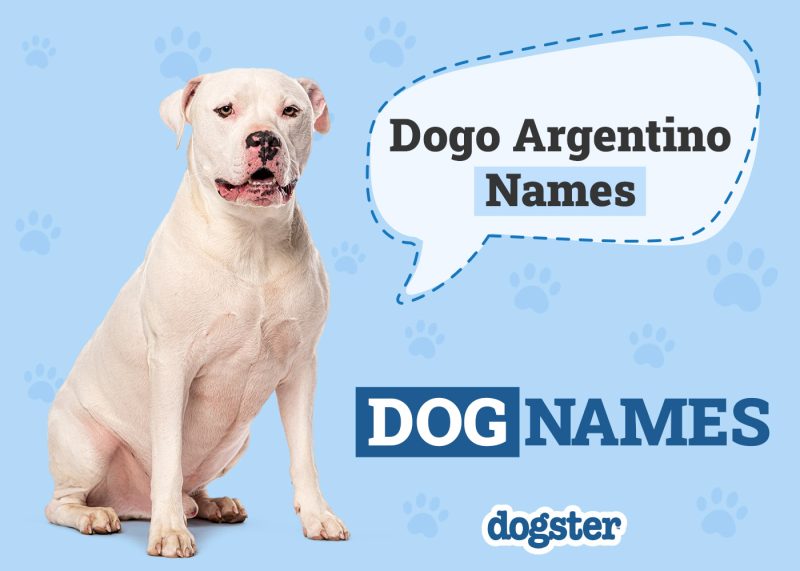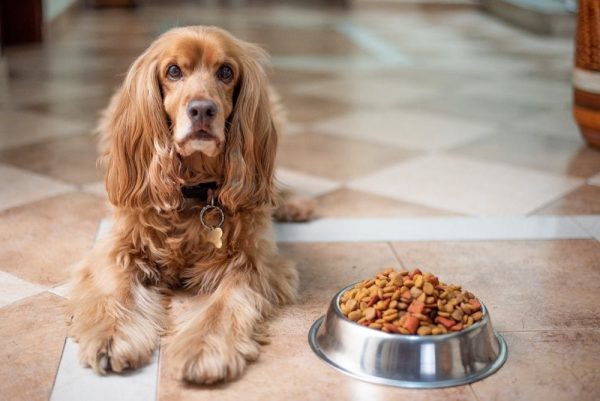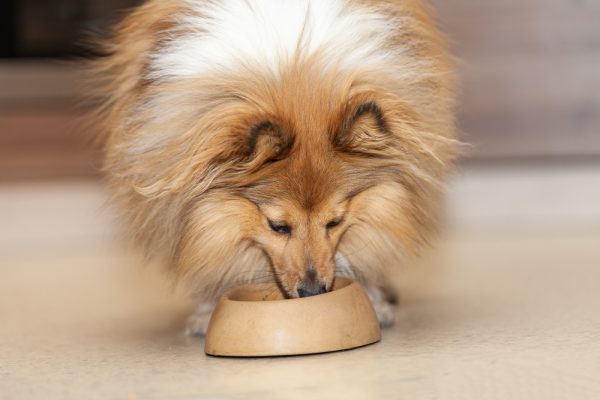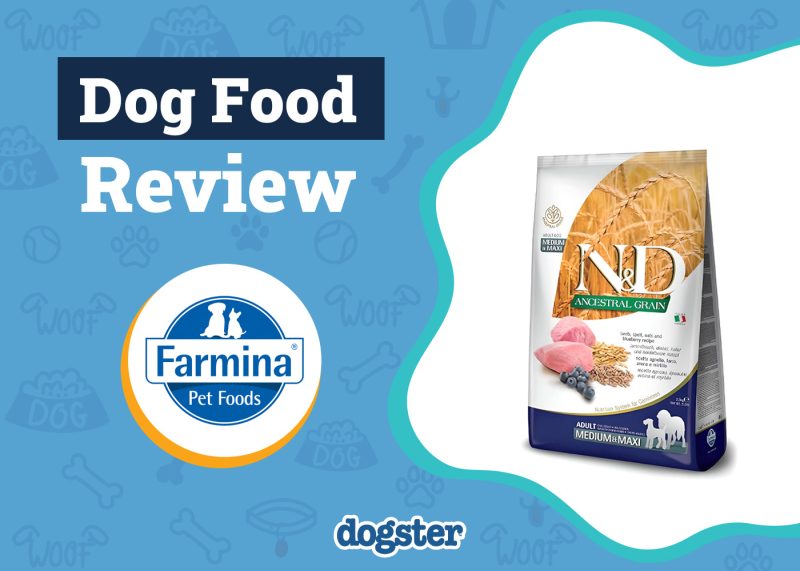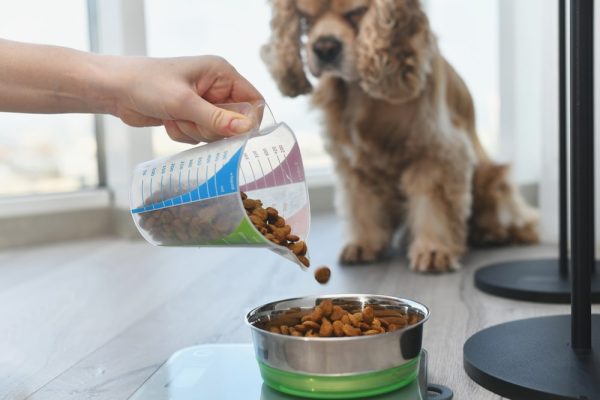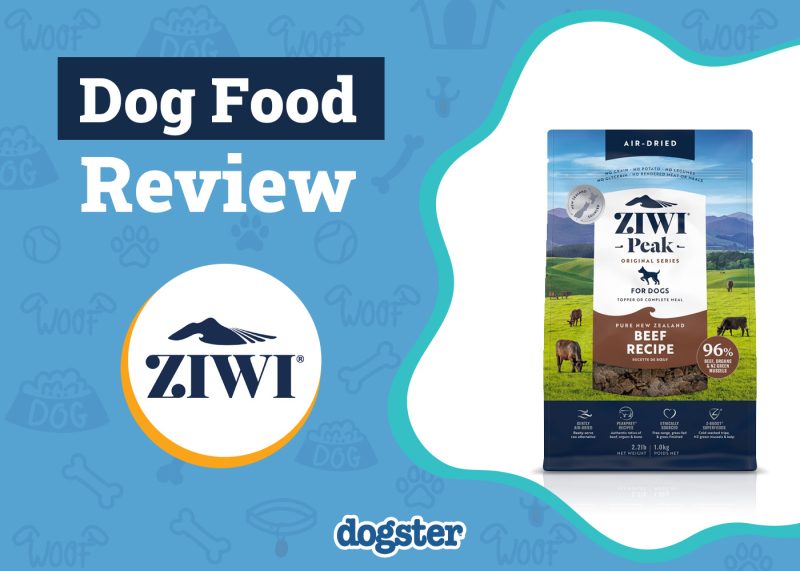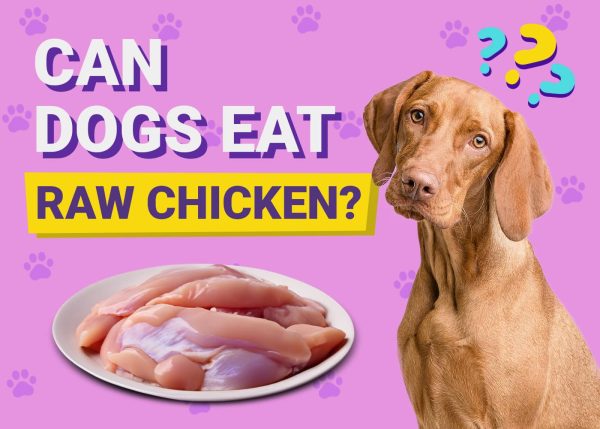In this article
View 2 More +Most dogs, especially curious little puppies, will chew on anything that they find, even seemingly harmless items like socks. However, swallowing a sock can lead to severe complications for your four-legged companion, so you’ll need to act quickly if you catch your pup in the act. Let’s see what steps you should take if you suspect that your dog has ingested your favorite pair of socks.
Note: If your dog is choking and/or can’t breathe, contact your veterinarian immediately so they can tell you what to do.

The 4 Steps to Take After Your Dog Eats a Sock
If your dog eats a sock, it can get stuck in their digestive system, causing a blockage. In such cases, surgery may be necessary to dislodge the sock. When a foreign body obstructs the intestines, it exerts pressure on the affected area, which can result in intestinal rupture. This can cause severe complications and in the worst cases, even lead to death.
This is why you must contact your veterinarian if your dog eats a sock, even if they don’t appear to be showing signs of distress, as this ingested foreign object can cause a potentially fatal obstruction.
Fortunately, not all cases result in such outcomes. Some dogs may pass the sock without any issues, while others may experience mild digestive upset. Here’s what you need to do if you know your dog has eaten a sock.
1. Stay Calm
Your first instinct may be to panic, but you need to stay calm to avoid stressing your dog—and yourself—even more. Assess if your dog is showing signs of distress.
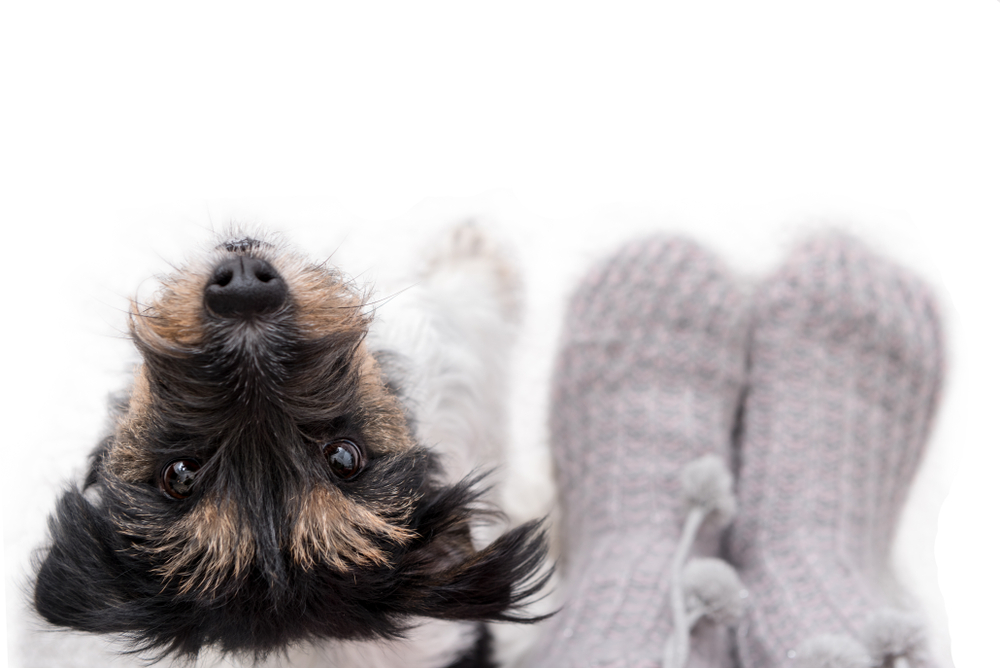
2. Contact Your Vet Immediately
Regardless of whether your dog seems fine, you must contact your veterinarian promptly. Don’t delay, as eating socks can lead to complications.
Your vet will ask you a few questions to determine the best course of action based on your situation. Make sure you know roughly when your dog could have eaten the sock, whether it was chewed up or swallowed whole, and if they have shown any signs of illness. The veterinarian will check your dog’s vitals and for any abdominal pain.
If the ingestion has just occurred, your vet may suggest removing the sock from the stomach via endoscopy or inducing vomiting.
If the situation is deemed low risk, they may suggest monitoring for any signs at home. Alternatively, if they are concerned, abdominal X-rays and treatment in the hospital may be needed, which would include intravenous fluids and medications.
If you need to speak with a vet but can't get to one, head over to PangoVet. It's our online service where you can talk to a vet online and get the advice you need for your pet — all at an affordable price!
3. Observe for Signs of Distress
If your vet has given the all clear to monitor your dog at home, keep a close eye on your dog for any unusual behavior or signs like vomiting, inappetence, small or no stools, diarrhea, lethargy, abdominal pain, or difficulty breathing. If you notice any of these signs, seek immediate veterinary care.
4. Monitor Their Bowel Movements
Even if your dog appears fine initially, you’ll need to monitor their bowel movements for the next few days. If the sock doesn’t come up in vomit or if it has already entered their intestines, there are two potential outcomes.
First, the sock will go through the intestinal tract, and your dog will eventually pass it out by pooping. Passing a sock can be painful and lead to dehydration, abdominal pain, nausea, and damage to the gastrointestinal tract. Your veterinarian may need to administer fluids, anti-nausea medication, pain relief, or antibiotics.
However, if your pup dog doesn’t defecate the sock, it may be stuck in their intestines. This is a life-threatening gastrointestinal blockage. In this case, your dog is usually vomiting and not eating. Surgery will be necessary to remove the sock before more severe complications like intestinal necrosis, intestinal perforation, dehydration, septic peritonitis, and aspiration pneumonia can occur.
In either case, if your dog’s behavior is out of character or you notice any signs, seek veterinary treatment immediately.
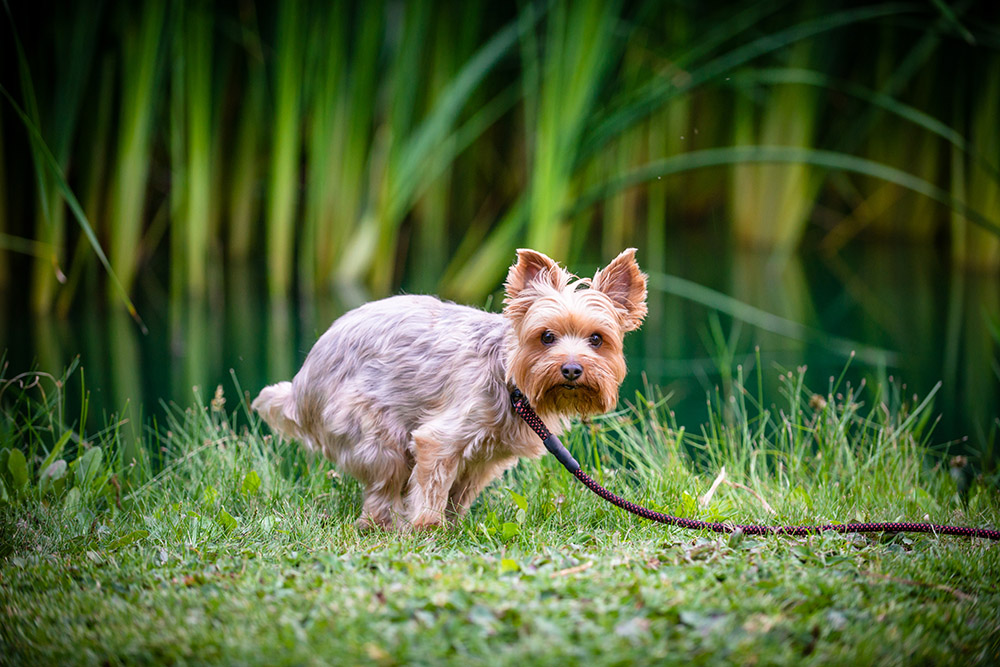

What to Do if Your Dog Is Choking
Choking on a sock is very unlikely. First observe your dog; can they breathe? Are they just trying to vomit? If your dog is truly choking, stay calm. If you can see the sock, try gently removing it with your fingers. You can sweep the inside of their mouth with your finger to look for it. However, if your dog panics, they may try to bite you, so be careful and if you think your dog may bite you don’t do it.
If your dog can’t breathe, you can attempt to perform the Heimlich maneuver to dislodge the sock, but be aware this can lead to internal damage and be careful, using appropriate force for the size of dog you have:
- Stand behind your dog.
- Put your arms around their ribs.
- Make a fist with one hand and cover it with the other hand.
- Push five times into the belly just below the ribs, pulling your hands up towards the spine.
- If that doesn’t work, give your dog five sharp blows on the back, between the shoulder blades.
- Check your dog’s mouth for the sock.
- Repeat until the sock comes out.
- Take your dog to your veterinarian promptly.

Frequently Asked Questions (FAQ)
My Dog Ate a Sock But Is Acting Normally. Should I Still Be Concerned?
Yes, you should still be concerned. While your dog may appear fine initially, ingesting a sock can pose serious risks, such as gastrointestinal blockages, as it moves along the intestines. Monitor your dog closely and consult your veterinarian for guidance.
Can I Induce Vomiting at Home If My Dog Ate a Sock?
Never induce vomiting in your pet without veterinary guidance, especially when it comes to ingesting foreign objects. Always consult your vet for the best course of action.
How Long Should I Monitor My Dog After They Ate a Sock?
You should monitor your dog closely, under veterinary guidance, until they have passed the sock in their stool (usually 24-48 hours, although it can be longer). Follow all your veterinarian’s instructions. Look out for any signs of distress or changes in behavior, and keep an eye on their bowel movements. If you notice any concerning signs, seek additional veterinary care immediately.
What Should I Do to Prevent My Dog From Eating Socks in the Future?
To prevent your dog from eating socks or other foreign objects, keep them out of your dog’s reach! Throw all dirty socks in the laundry basket immediately. Provide your dog with appropriate chew toys to distract them from swallowing things that they shouldn’t.
Discuss with your veterinarian whether your dog could have pica (a condition leading them to eat inedible objects) and whether there is an underlying cause, such as anxiety. Speak to them about treatment options.
If all else fails, training your dog to accept wearing a well-fitted basket muzzle during certain times can prevent them from eating socks.
- You may be interested in: Best Dog Muzzles – Reviews & Top Picks
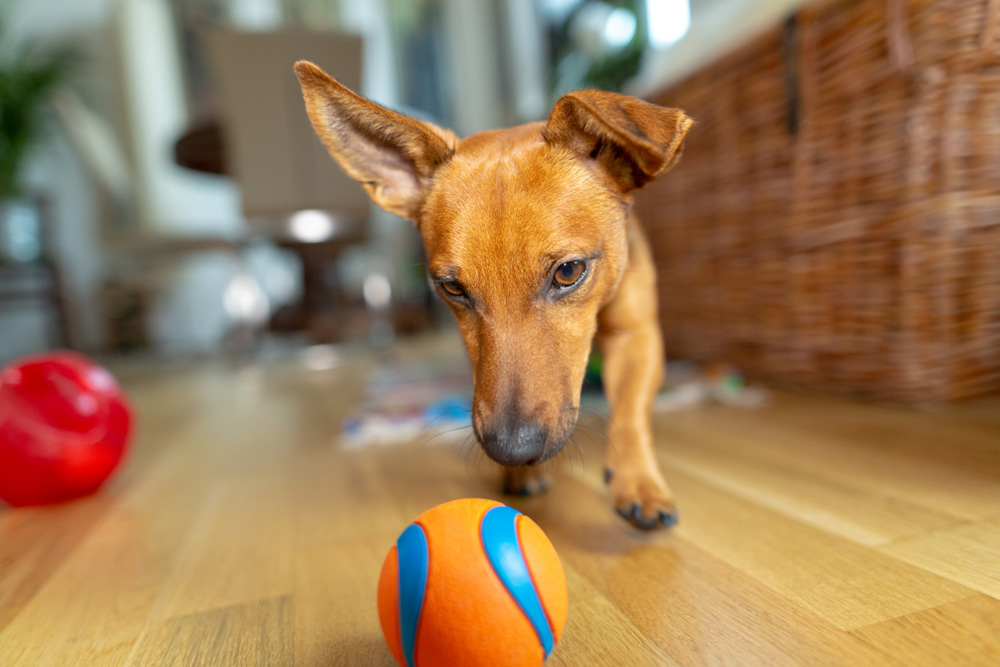

Final Thoughts
If you think that your dog has eaten a sock, you should act calmly but quickly. Consulting your vet is always the first and most important step. Keep a close eye on your pup for any signs of distress, and strictly follow your vet’s advice. If the sock doesn’t get stuck in your dog’s intestinal tract, it should pass naturally and end up in your pet’s feces within a few days.
See also:
- My Dog Ate Hand Sanitizer: Our Vet Explains What to Do.
- My Dog Ate a Silica Packet: What to Do (Vet Answer)
Featured Image Credit: Zachary Pennington, Shutterstock


